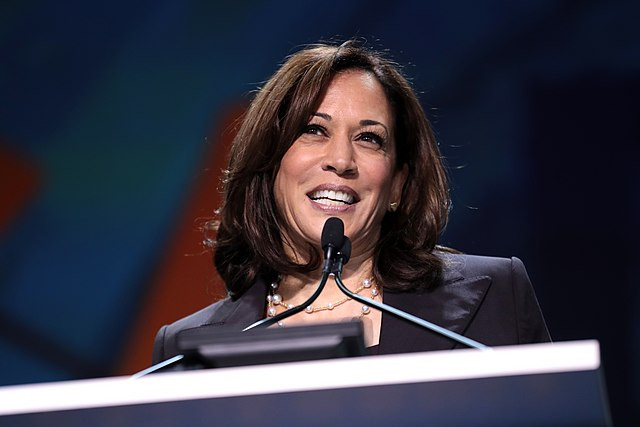Vice President Kamala Harris and former President Donald Trump have both thrown their support behind the elimination of taxes on tips-a proposal that has rapidly gained bipartisan traction and stirred debate among economists. The rare convergence of opinion between the two political adversaries highlights the significance of service workers as a key voter base, particularly in crucial swing states.
Speaking at a campaign rally in Nevada, Harris pledged to push for the elimination of taxes on tips if elected president. "It is my promise to everyone here, when I am president, we will continue to fight for working families, including to raise the minimum wage and eliminate taxes on tips for service and hospitality workers," Harris told an enthusiastic crowd at the University of Nevada, Las Vegas.
The proposal mirrors a policy that Trump has been championing since June, after a Las Vegas server expressed concerns about the government taking too large a cut from her tipped wages. Trump quickly embraced the idea and has since made it a key talking point in his campaign. However, he was quick to criticize Harris for adopting a similar stance, accusing her of copying his proposal for "political purposes."
"This was a TRUMP idea-She has no ideas, she can only steal from me," Trump posted on Truth Social. "Remember, Kamala has proposed the LARGEST TAX INCREASE IN HISTORY-It won't happen."
Harris's campaign responded by emphasizing the distinctiveness of her proposal, noting that as president, she would work with Congress to ensure the policy is implemented in a way that benefits low-income workers without allowing high earners to exploit it. "Vice President Harris would push for the proposal alongside an increase in the minimum wage," a campaign official said.
The idea of eliminating taxes on tips has found bipartisan support on Capitol Hill. In July, Senator Ted Cruz (R-Texas) introduced the No Tax on Tips Act, with the backing of Democratic Senators Catherine Cortez Masto and Jacky Rosen, both from Nevada, and the influential Culinary Workers Union Local 226. A companion bill is also making its way through the House, introduced by Representative Byron Donalds (R-Florida).
Despite its political popularity, the proposal has been met with skepticism from economic experts. Steve Rosenthal, a senior fellow at the Urban-Brookings Tax Policy Center, criticized the idea as a "bad" one, arguing that it fails on several counts, including equity, efficiency, and revenue. "We're in a campaign season-silly season," Rosenthal quipped, describing the policy as part of a "race to the bottom" in tax policy.
Rosenthal pointed out that a national ban on taxing tips would disproportionately benefit workers in states with lower minimum wages and a higher reliance on tips, while those in states with higher wages would see less benefit. He also raised concerns about the difficulty of administering and regulating such a policy, particularly in distinguishing between tips and wages in certain industries.
Garrett Watson, a senior policy analyst at the Tax Foundation, echoed Rosenthal's concerns, questioning the underlying policy rationale. He cited a study by The Budget Lab at Yale University, which found that only 2.5% of workers would benefit from a tax-free tips policy. Watson also expressed interest in seeing more details from both campaigns on how they plan to implement the policy.
Meanwhile, the Culinary Workers Union Local 226, which has long advocated for fair taxation on tips, endorsed Harris's proposal over the weekend. "As the largest organization of working women in Nevada, the chance to elect the first woman president of the USA is both energizing and historic, and we are ready to make history together," the union said in a statement.






